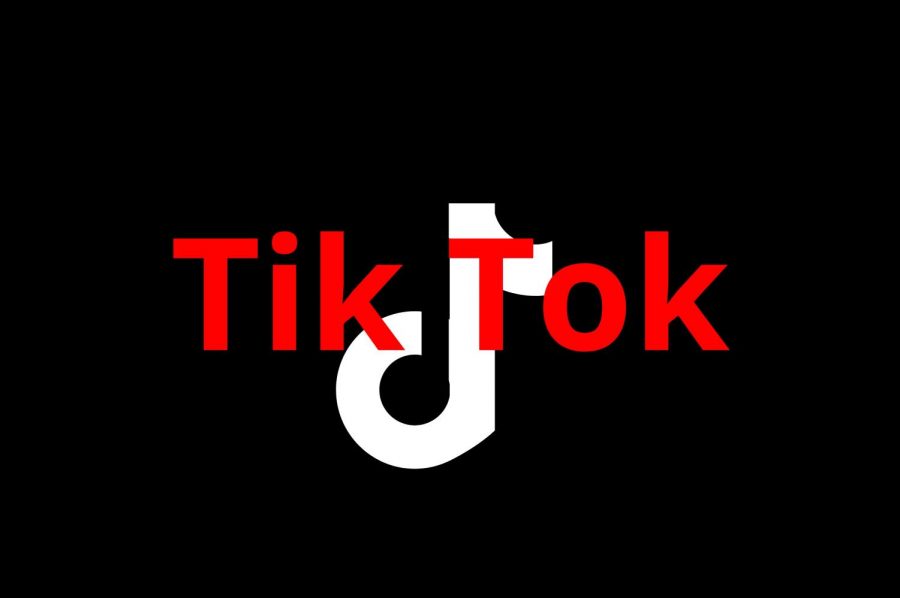The Challenges of TikTok Go Beyond Teens Making Memes. The Company Now Has a U.S. National Probe
December 22, 2019
Kenzie Wilkinson, a freshman studying Multi-Disciplinary Design at the University of Utah, has a theory on why the mobile application TikTok appeals to a younger demographic. “They’re adapted to online challenges and who can make the best videos,” she said. Though TikTok has exploded in popularity, Wilkinson believes many her peers initially downloading the app as “a joke.” “Mainly e-boys and e-girls are on it,” she said, a descriptor for young people who employ a reconfigured emo aesthetic with a substantial presence online.
The application has drawn a massive audience of teens and young users. Tiktok is owned by ByteDance, a Chinese company that runs other social apps on mobile devices. Last month, the federal government’s Committee on Foreign Investment in the United States launched a national security probe into TikTok to evaluate risks for the country.
Zachary Stickney, a PhD student in the U’s political science department who is interested in the ethics of emerging technology, tech and activism, says this concern by the U.S. isn’t new.
“In 2012, under the Obama administration, bipartisan members of the House Intelligence Committee released a report expressing concerns over Chinese telecom giant Huawei,” he said. The government worried “that the company might be used as an intelligence-gathering tool by the Chinese communist party.”
Critics of TikTok highlight the risks of censorship and propaganda. TikTok has been accused of taking videos down mentioning certain aspects of Chinese history, like Tiananmen Square, and the Islamic State has used the app to share recruiting videos that have since been taken down.
So far, there have been 1.5 billion worldwide downloads of TikTok through Apple’s App Store and Google Play, surpassing Facebook and Instagram. Since its launch last year in November, users in the U.S. have generated $62.4 million for the company.
“The questions the U.S. government has are what data is being gathered and how,” said Stickney. “How is it being stored, and who has access? Does the company have any ties to the Chinese government which may be cause for concern?”
Introducing legislation on Monday, Nov. 25 to combat big tech companies storing data within servers hosted in China, Republican Sen. Josh Hawley of Missouri contended that TikTok’s attempt to assuage users and officials that their company doesn’t operate in China was insufficient. “All it takes is one knock on the door of their parent company based in China from a Communist Party official for that data to be transferred to the Chinese government’s hands whenever they need it,” he said.
Hawley also criticized Apple for its ties with China. These concerns may be especially prominent in lawmakers’ minds as many fear potential interference from foreign governments in the 2020 election.
In 2017, China passed an intelligence law, and Stickney says the contents of Article Seven are unambiguous to interpretation. ” The law states, “any organization or citizen shall support, assist, and cooperate with state intelligence work according to law,” possibly leaving room for the country to require tech companies to comply with their intelligence efforts.
However, Stickney says these attempts carried by the U.S. government and Hawley may not be enough to squelch the vulnerabilities affecting national security matters. In fact, many significant problems originate not in China or Russia, but in the U.S.
“We’ve already seen that U.S. law and regulation in this space probably isn’t sufficient, even in regards to American companies,” Stickney said. “Election interference [and] surveillance capitalism have shown us that protections around data and privacy in the U.S. are not sufficient, even for U.S. companies.”
These issues are associated consistently with Facebook, a giant tech company under fire with several scandals involving political firm Cambridge Analytica in 2018 for accessing over 50 million users’ data to influence voters during the 2016 presidential election. The Federal Trade Commission fined the company $5 billion over privacy ordeals.
A study group of other women familiar with the app nodded their heads in agreement with Wilkinson, not persuaded by the potential online culture shift mobilized by TikTok. “We all laugh at the memes but it’s just a false portrayal of reality,” she said. “At the end of the day, it’s just an app.”
Stickney said that even if the U.S. ends up clearing TikTok of any wrongdoing, it’s still valuable for the public to understand their participation in the limelight of data privacy. “I want to emphasize that these are absolutely the right questions to be asking — not only of companies with foreign ties, but domestically as well,” he said. “The value of the data these organizations are able to gather, and the type of influence which can be exerted on a variety of levels, cannot be understated.”








